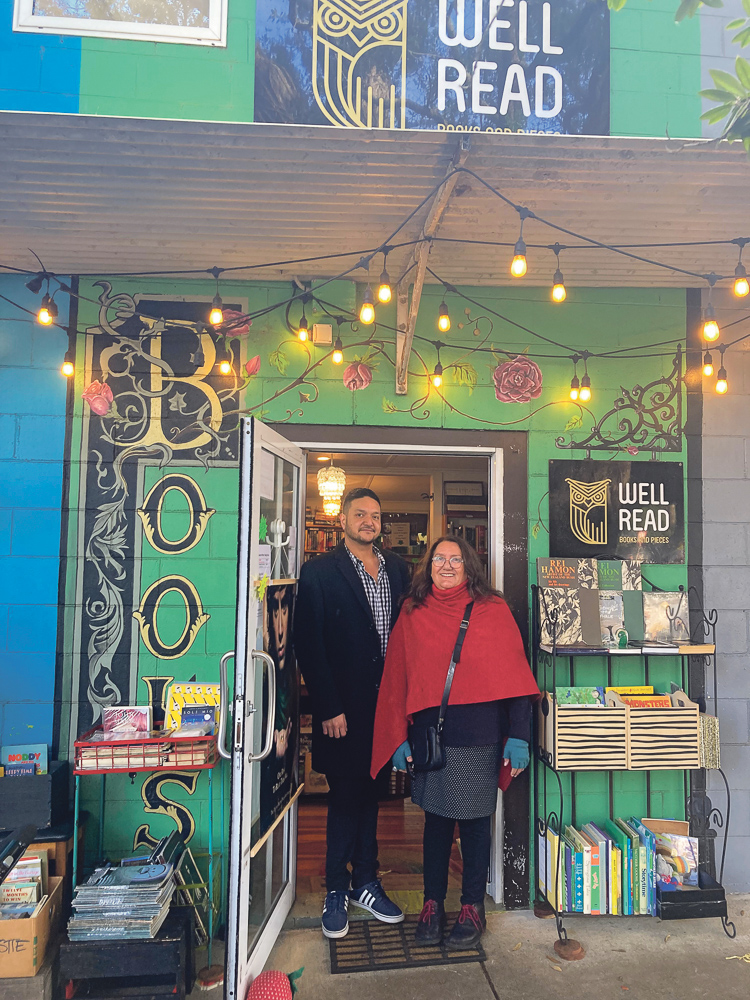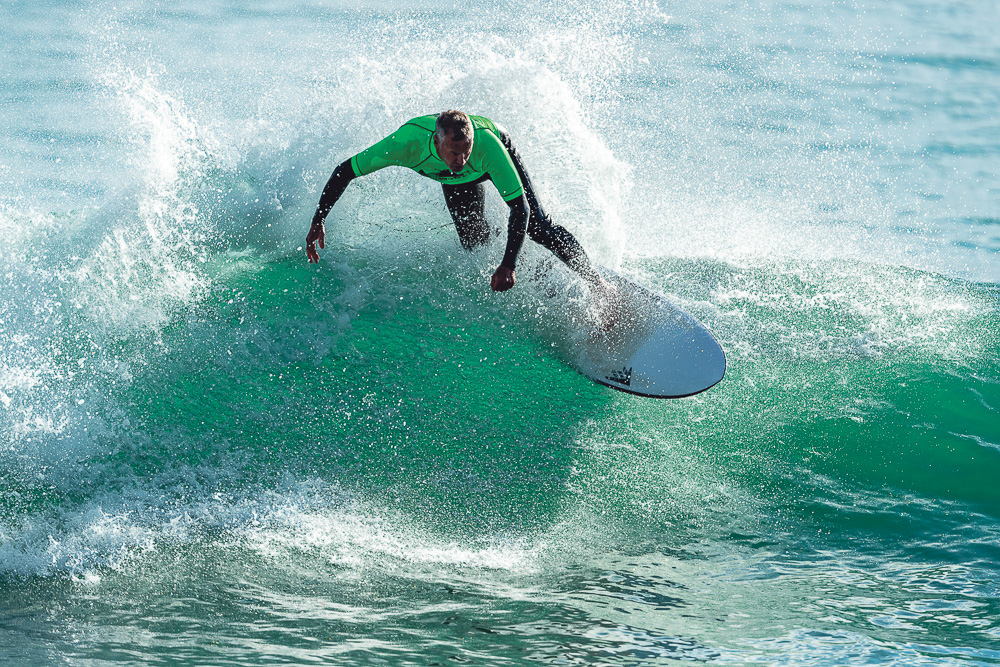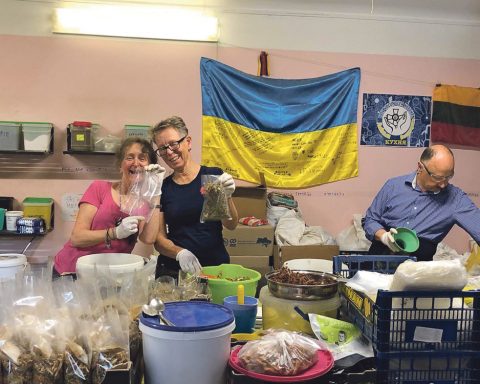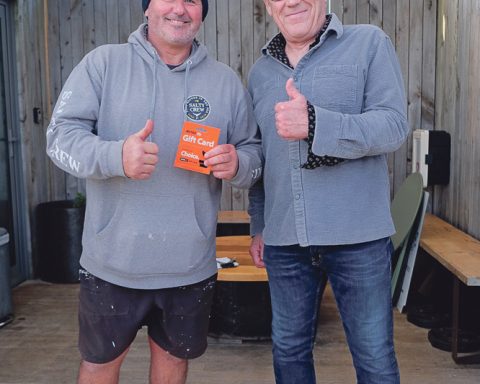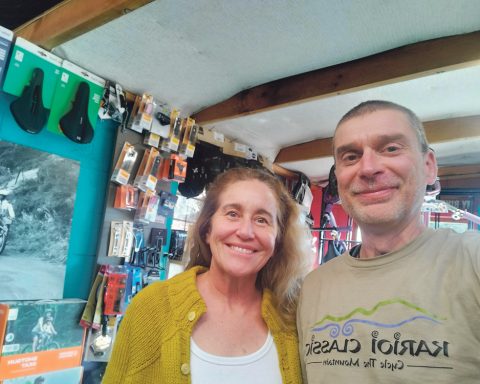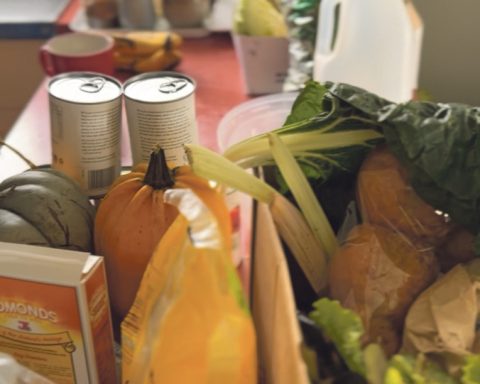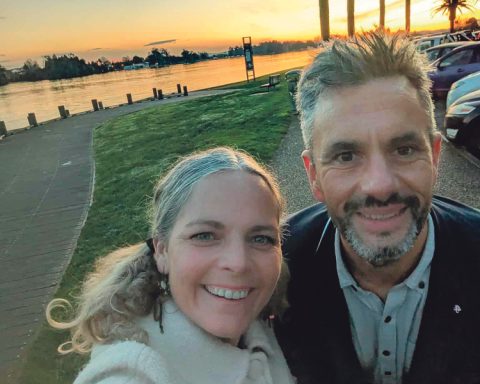Ken Sparks moved to Whāingaroa from Auckland two years ago to be closer to his granddaughters, Dali and Rio. A former film editor, he is now enjoying a slower life here as a builder. We sat down to chat about mental health and going through crises later in life.
What is your relationship like with your mental health and is it something that you consider every day?
It is now. It didn’t used to be. In my younger life, I was full on with work and family. I guess I had flat periods but I always just bashed on through. I never really had a mental health crisis until my mid to late 50s. I was a film editor. I was getting really strung out over being tied to a workstation all day. I did a lot of long hours throughout my career. I had a love-hate relationship with my work. I loved the whole process and I loved being involved with directors and collaborating. But the sedentary nature of it was hard. I used to get around it by running a lot and I think that kept my mental health up. But I did have a crash around when I turned 60. It baffled me. I couldn’t work it out. Why was I feeling so anxious and so wound up? I think it was a lot to do with consuming news voraciously and getting really emotionally engaged as well as being engaged in a political sense. I joined Auckland Peace Action and got really involved in engaging with other cultures. The community of that helped. Life is all about other people, right? There were times when I went down pretty hard and became non-functional. In a work sense, anyway. I was able to look after myself, but at work, I just had to say, “I can’t.” I was living on my own at this stage. My kids were all looking after themselves. I did feel like work ethos was a big thing for me. You can’t just stop working. Burnout is a real thing and I experienced that. I found ways to get around it by being really careful about the work I was taking on but I couldn’t wait to stop. I’m building now. I’ve always wanted to build. Since I was a kid I’ve enjoyed creating and designing stuff and drawing it up. I’m just doing little jobs for the people that the big builders don’t want anything to do with. I want to do a good job and I want to leave people happy.
What was your relationship like with your mental health when you were younger?
It was pretty good. We had a close family. Music was really important to my parents and it became important to all of us. We did a lot of music together. My mum was the wardrobe mistress for the local operatic society for years. We were growing up on the farm and working together a lot. I was the only son, so my father was relying on me quite a bit. I didn’t mind at all. I don’t mind a bit of solitude. I’ve always been a walker and I love being out in the bush. When I was a teen, I went through the normal stuff but nothing traumatic at all. You always have your highs and your lows. It’s a rollercoaster but you learn early on that it’s not always going to be sweet. Then something went off inside my head when I turned 60 and I was like, “What am I gonna do? I’ve got no money!” Instead of going, “Don’t worry about it. You’ve got brilliant kids and an amazing family around you; you’ll all look after each other.” Which is exactly what did happen. You feel like you have to do it all by yourself.
When you were at that lowest point what did you do to get out of it?
I took action. I’ve had a number of counsellors. I didn’t really feel any stigma about seeking help. I got a lot of, “What do you mean you’re anxious?” If I knew that I’d be well on the way to recovery! My doctor prescribed medication and I’m still on it. I think about trying to phase it out, but then if it is working, I don’t want to have it unwork! Yoga and meditation. I got right into doing body progression stuff. I initially did it with a guide and you just move through each part of your body as you relax it. I ended up being able to do it with my own internal voice. When I need to ease my thoughts, I need something physical to focus on. Then at the end of it, you’re completely relaxed. My life is so much easier now. When I first moved here, I was a bit of a mess, to be honest. Life has taken a real turn for the better since then. I think a younger version of myself may have not sought out that sort of help. I do remember feeling pretty down in my forties when my marriage was heading south and I just battled on. It’s about recognising when you’re heading down a spiral and you’re not going to be able to get yourself out of it. It’s coming to that realisation sooner. It’s scary to admit that.
What are some of the lessons that you’ve learned along the way?
Life is about other people! Don’t lie, tell the truth. Electing not to say anything can be the right choice. If it isn’t right, don’t do it. Learning gratitude is a big one. People say don’t look at the news but I think it’s valuable to see how hard life is for some other people on this planet; it’s important to be aware. It’s really difficult though, especially with Gaza. You just can’t unsee it.
What are the tools in your toolbox?
The Karioi Project is really good for me. I was up on Karioi last week. I’m learning the trap lines. My partner lives in Wellington and we do a lot of travelling together. Swimming in the sea is important; I just love the white noise. Exercise is very important. I’ve started singing again. That was near the top of my list when I moved here. I’ve found the right place to blossom. There’s a lot of energy here. This is a community that really looks out for each other.





